Filter by
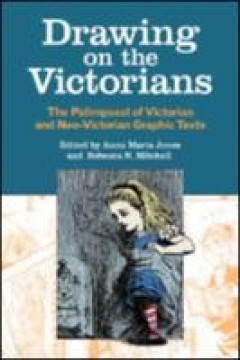
Drawing on the Victorians : the palimpsest of Victorian and neo-Victorian gra…
Late 19th-century Britain experienced an explosion of visual print culture and a simultaneous rise in literacy across social classes. New printing technologies facilitated quick and cheap dissemination of images—illustrated books, periodicals, cartoons, comics, and ephemera—to a mass readership. This Victorian visual turn prefigured the present-day impact of the Internet on how images are p…
- Edition
- -
- ISBN/ISSN
- 9780821445877
- Collation
- XIV, 382 p.
- Series Title
- -
- Call Number
- 700.94109034 DRA d
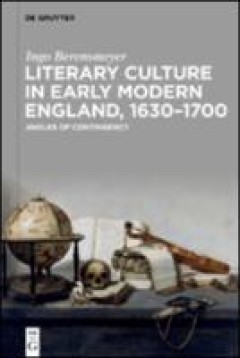
Literary culture in early modern England, 1630–1700 : angles of contingency
This book explores literary culture in England between 1630 and 1700, focusing on connections between material, epistemic, and political conditions of literary writing and reading. In a number of case studies and close readings, it presents the seventeenth century as a period of change that saw a fundamental shift towards a new cultural configuration: neoclassicism. This shift affected a wide a…
- Edition
- -
- ISBN/ISSN
- 9783110691375
- Collation
- XII, 282 p.
- Series Title
- -
- Call Number
- 810.90 BER l
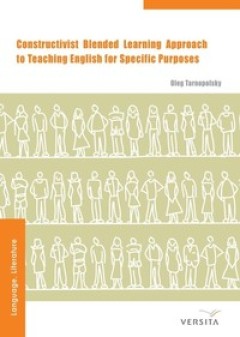
Constructivist blended learning approach : to teaching English for specific p…
This monograph analyzes an innovative approach to teaching English for Specific Purposes (ESP) in tertiary education. This "constructivist blended learning approach" is based on students "constructing" for themselves their own knowledge and professional communication skills in English by making extensive use of Internet sites in English, combining traditional in-class learning with in- and out-…
- Edition
- -
- ISBN/ISSN
- 9788376560014
- Collation
- VII, 256 p.
- Series Title
- -
- Call Number
- 410 TAR c
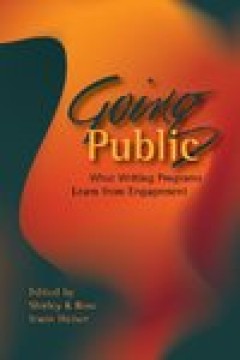
Going public : what writing programs learn from engagement
An important new resource for WPA preparation courses. In Going Public, Rose and Weiser moderate a discussion of the role of the writing program vis-a-vis the engagement movement, the service learning movement, and the current interest in public discourse/civic rhetoric among scholars of rhetoric and composition. While there have been a number of publications describing service-learning and com…
- Edition
- -
- ISBN/ISSN
- 9780874217698
- Collation
- II, 259 p.
- Series Title
- -
- Call Number
- 428.00712 ROS g
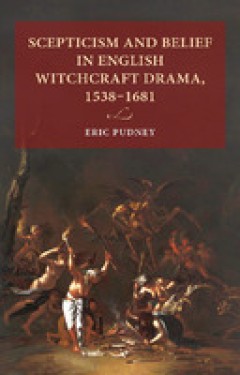
Scepticism and belief in English witchcraft drama, 1538-1681
This book situates witchcraft drama within its cultural and intellectual context, highlighting the centrality of scepticism and belief in witchcraft to the genre. It is argued that these categories are most fruitfully understood not as static and mutually exclusive positions within the debate around witchcraft, but as rhetorical tools used within it. In drama, too, scepticism and belief are vit…
- Edition
- -
- ISBN/ISSN
- 9789198376876
- Collation
- IX, 244 p.
- Series Title
- -
- Call Number
- 822.209 PUD s

Sharing our knowledge: best practices for supporting English language learner…
To complete the course ECUR 415.3: Current Issues in EAL, students are required to submit a final paper that reflects their growing knowledge about English as an Additional Language (EAL). EAL is the term used in Saskatchewan to describe students who speak languages other than English and require adequate levels of English to be successful with the school curriculum. Most students enrolled i…
- Edition
- -
- ISBN/ISSN
- -
- Collation
- 182p. : ill.
- Series Title
- -
- Call Number
- 428.24 SHA s
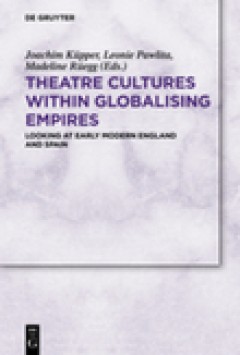
Theatre cultures within globalising empires
This volume presents the proceedings of the international conference “Theatre Cultures within Globalising Empires: Looking at Early Modern England and Spain”, held in 2012 as part of the ERC Advanced Grant Project Early Modern European Drama and the Cultural Net (DramaNet). Implementing the concept of culture as a virtual network, it investigates Early modern European drama and its global d…
- Edition
- Edited by Joachim Küpper and Leonie Pawlita
- ISBN/ISSN
- 9783110536881
- Collation
- ix, 230 p.; 22 cm.
- Series Title
- -
- Call Number
- 822 THE t
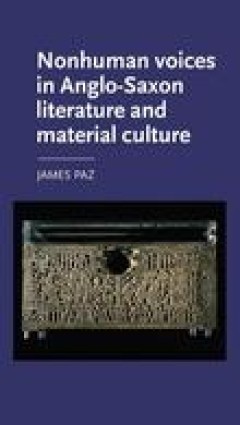
Nonhuman voices in Anglo-Saxon literature and material culture
"Anglo-Saxon ‘things’ could talk. Nonhuman voices leap out from the Exeter Book Riddles, telling us how they were made or how they behave. The Franks Casket is a box of bone that alludes to its former fate as a whale that swam aground onto the shingle, and the Ruthwell monument is a stone column that speaks as if it were living wood, or a wounded body. In this book, James Paz uncovers the v…
- Edition
- -
- ISBN/ISSN
- 9781526115997
- Collation
- X, 236 p.
- Series Title
- Manchester Medieval Literature and Culture
- Call Number
- 829.09 PAZ n
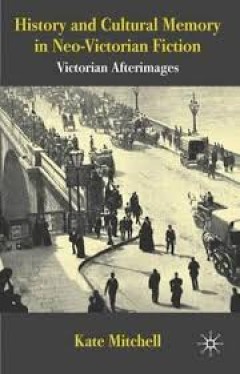
History and cultural memory in neo-Victorian fiction: Victorian afterimages
History and Cultural Memory in Neo-Victorian Fiction combines innovative literary and historiographical analysis to investigate the way neo-Victorian novels conceptualise our relationship to the Victorian past, and to analyse their role in the production and communication of historical knowledge. Positioning neo-Victorian novels as dynamic participants in the contemporary historical imaginary, …
- Edition
- -
- ISBN/ISSN
- 978023022858
- Collation
- ix, 222 p. ; 23 cm.
- Series Title
- -
- Call Number
- 823.809358 MIT h
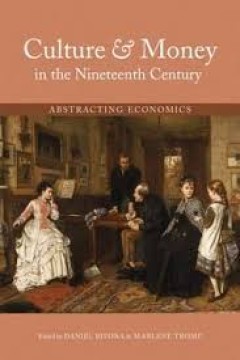
Culture & money in the nineteenth century: abstracting economics
Since the 1980s, scholars have made the case for examining 19th-century culture, particularly literary output, through the lens of economics. Bivona and Tromp have collected contributions that push New Economic Criticism in new directions.Spanning the Americas, India, England, and Scotland, this volume adopts a global view of the cultural effects of economics and exchange. Contributors use the …
- Edition
- -
- ISBN/ISSN
- 9780821421963
- Collation
- viii, 230 pages ; 24 cm.
- Series Title
- Series in Victorian studies
- Call Number
- 306.009034 BIV c
 Computer Science, Information & General Works
Computer Science, Information & General Works  Philosophy & Psychology
Philosophy & Psychology  Religion
Religion  Social Sciences
Social Sciences  Language
Language  Pure Science
Pure Science  Applied Sciences
Applied Sciences  Art & Recreation
Art & Recreation  Literature
Literature  History & Geography
History & Geography